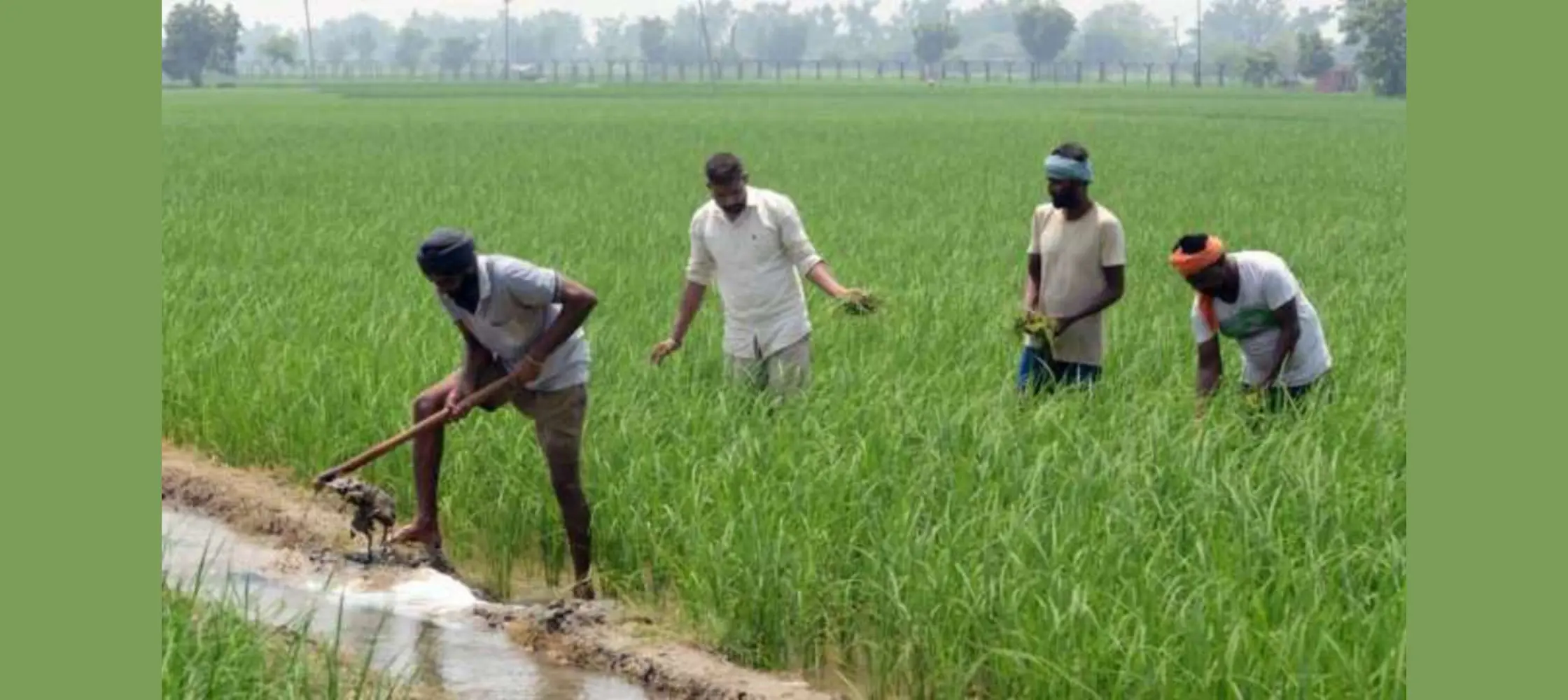
In the heartland of India's agricultural landscape, Punjab's farmers and farm laborers are grappling with a distressing reality that demands urgent attention. The recently released report by the National Bank for Agriculture and Rural Development (NABARD) has cast a spotlight on the dire financial condition of Punjab's farmers, placing them at the forefront of the nation's agricultural crisis. This report, combined with the troubling suicide statistics and the economic plight of farm laborers, paints a grim picture that necessitates a thorough re-evaluation of agricultural policies and practices.
NABARD's report reveals a disheartening truth. Punjab's farmers are burdened with the heaviest institutional debt in the country. With nearly 2.5 million farmers having availed loans for agricultural purposes, the average debt per farmer stands at around Rs 2.95 lakh. The unbearable pressure and stress of being under heavy debt have tragically led to a shocking rise in farmers’ suicides. According to official figures, more than 1,000 farmers took their own lives between 2017 and 2021, a significant number of these cases directly attributed to the crushing weight of debt.
A study report from a Patiala-based think tank underscores the dire circumstances of farm laborers, a group often overshadowed in discussions about the farming sector. The study reveals that the debt carried by farm laborers is a staggering four times their annual income, which averages a meager Rs.24,000. These laborers, who form the backbone of agricultural activities, face not only financial vulnerability but also psychological distress due to their precarious economic situation. The state's study on farm laborer suicides, reporting 898 suicides between 2015 and 2019, underscores the urgency of addressing their plight.
Addressing the agricultural crisis in Punjab extends beyond mere debt relief. While the political rhetoric often centres on quick fixes such as debt waivers, the reality demands more sustainable and holistic measures. The history of the debt-waiver schemes serve as a stark reminder that short-term solutions do not bring about lasting change. A true transformation in the lives of farmers and labourers necessitates comprehensive and forward-thinking agricultural reforms.
One key aspect of reform lies in promoting diversification towards eco-friendly and high-yielding crop varieties. Punjab's overdependence on water-intensive crops has led to rampant groundwater depletion and ecological imbalance. Encouraging farmers to cultivate crops that require less water while ensuring a stable income can help mitigate the ecological and economic challenges faced by the state.
Additionally, tackling the issue of stubble burning, a major contributor to air pollution and environmental degradation, requires comprehensive strategies. Implementing sustainable practices like mechanized farming, crop rotation, and promoting the use of crop residue for alternative purposes can alleviate the challenges associated with stubble burning.
Efforts to alleviate the situation of farm laborers should not be sidelined. Increasing their earning potential through skill development, providing access to social security benefits, and creating avenues for alternative employment during off-seasons can significantly improve their economic stability.
Punjab's farmers and farm laborers have long been the backbone of the nation's food security. Their struggles demand an immediate response that extends beyond rhetoric and short-term fixes. Policymakers must collaborate with experts, stakeholders, and the farming community to devise comprehensive strategies that ensure the economic, ecological, and emotional well-being of those who toil to put food on our plates.
In the wake of these alarming statistics, the state government's commitment and resolve to address the farmers' challenges hold immense significance. A multi-pronged approach, encompassing sustainable agricultural practices, financial support, and holistic reforms, can provide the much-needed impetus for Punjab's agriculture to regain its vibrancy. The hardworking individuals who tirelessly cultivate the land deserve nothing less than a dignified and secure livelihood. It is high time that the nation unites to pave the way for a brighter future for Punjab's farmers and farm laborers. The nation owes it to the farmer of Punjab for their unforgettable contribution to make India self-sufficient in food grains by ensuring the “Green Revolution”.
Your email address will not be published. Required fields are marked *
29 Jan, 2024
29 Jan, 2024
29 Jan, 2024
25 Jan, 2024